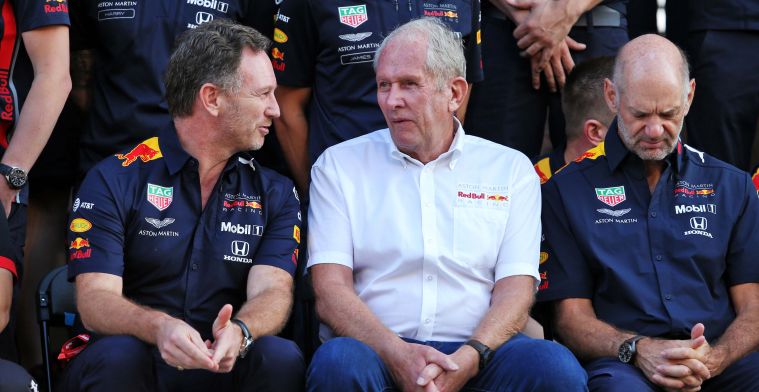Currently, the minimum weight for a Formula 1 car is placed at 795 kg, increasing slightly every year. More recently, however, F1 CEO Stefano Domenicali publicly announced F1’s goals for lighter, more sustainable and noisier engines.
Teams have been divided on this proposition. The Austria-based energy drink subsidiary, Red Bull, has been one of the teams pushing for lighter engines. Special advisor to the team, Helmut Marko, recently called out rivals Mercedes and Ferrari on their hesitancy to support this idea.
Red Bull special advisor fed up with Mercedes and Ferrari
Helmut Marko is famous for his blunt, merciless statements tending to spark controversy in the paddock. Most recently, he expressed his distaste for teams forming the F1 paddock who are opposing F1’s idea of lighter engines from 2026.
🚨 Helmut Marko fires shots at rivals for opposing lighter engines for 2026:
"Vasseur is continuing his love affair with Toto, therefore there is little resonance at Ferrari."
"At Renault, they don't know what they're doing."
[@MST_Formel1] #F1 pic.twitter.com/f9RjFM7Ypq
— RBR Daily (@RBR_Daily) August 14, 2023
Speaking to Formel1.de, he specifically called out rivals Mercedes and Ferrari saying,
“Vasseur continues his love affair with Toto [Wolff], so there is little resonance at Ferrari. At Renault, they don’t know what they’re doing. We don’t have any allies at the moment.”
While it is true that lighter cars go faster, the primary concerns among those opposing the idea in the paddock are surrounding the possible effect on aerodynamics. Some teams have even suggested that the changes proposed would result in heavier, not lighter cars. But what exactly are these changes?
How will lighter engines help F1 teams?
While announcing the plans Formula 1 has in mind to execute, CEO Stefano Domenicali stressed on the importance of lightening every component of the car, claiming that it was in “F1’s DNA” to do so. However, it must be noted here that weight increases over the years have been more due to safety regulations.
📰: Formula 1 CEO Stefano Domenicali discusses future plans, including potential rewards for drivers achieving a Grand Slam, in an exclusive interview. He addresses topics such as the calendar, sprint races, and the balance between stability and innovation. Domenicali emphasizes… pic.twitter.com/uhykjH2Hjk
— F1 Naija 🇳🇬 (@f1_naija) July 14, 2023
He explains that lighter cars would be a result of sustainable fuels, saying “I believe if we do a good job with sustainable fuels, we will be able to have simplified engines in a few years with a lower impact on weight. It’s something we’ll soon start thinking about.”
However, this could have a negative effect on the car’s aerodynamics. Teams are under the impression that if they slim their car down, air resistance would be lower. This would mean that the effect of the slipstream, one of the key factors for overtaking, may be lost.
Do you agree with this proposed change for 2026? Will setting the regulation as a minimum fuel amount instead of a minimum weight make for more competitive racing as Red Bull and Formula 1 advocate for, or can it have the negative effect imagined by the other teams? Comment what you think down below!








Well written, Divyansh!
I think the key aspect to maintain public interest in F1 is that it should generate more competitive racing with overtaking, put strategy manoeuvres etc while they will probably also have to move to Biofuels to drive the technology development in that range of engines. Anything that supports this direction, I support!!